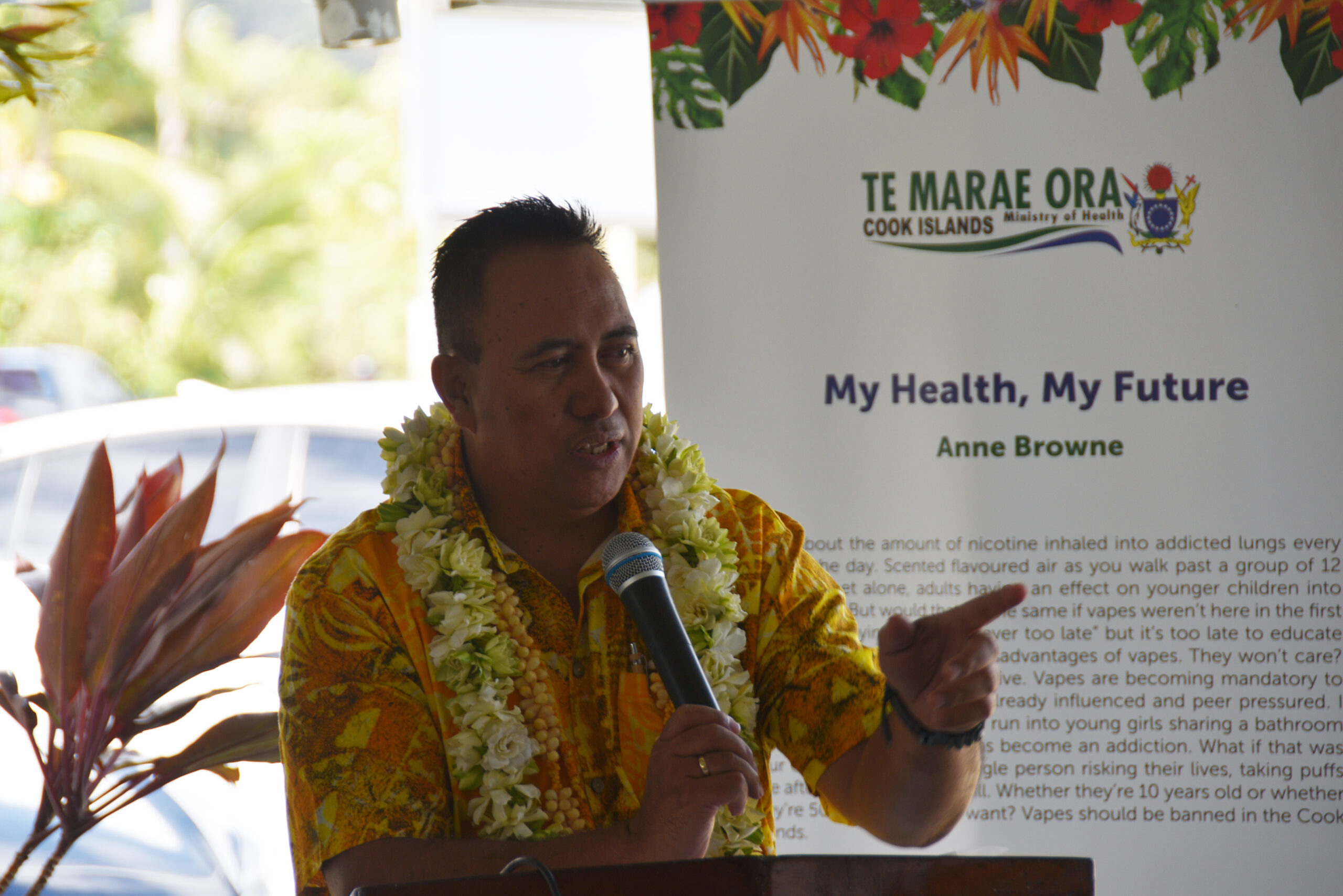Cook Islands grapples with highest childhood obesity rates in the world
Monday 4 March 2024 | Written by Rashneel Kumar | Published in Health, National

Secretary for Te Marae Ora Ministry of Health, Bob Williams, says he is concerned about having the highest ranking in childhood obesity in the world. 23110442.
Cook Islands has the highest childhood obesity rate, with over 30 per cent of children having obesity, a recent study on worldwide trends in underweight and obesity reveals.
Bob Williams, Secretary for Te Marae Ora Ministry of Health, said they are concerned with the statistics.
Williams said the Healthy Island and Healthy School screening done last year for schools on Rarotonga and the Southern Group Islands also indicated obesity among children at around 30 per cent.
“TMO is concerned and parents should be concerned too,” Williams said. “This is all attributed from the lifestyle that we allow ourselves and our children to have.”
The main causes are the sugary drinks and the processed or unhealthy food that we allow our children to drink and eat, he said.
Williams added that there is also an increase in the rate of physical inactivity among our people and children.
“We have also discovered smoking and vaping amongst children as well,” he said. “These are key health risk factors not only affecting our children but majority of our people.”
The study published in The Lancet medical journal last week shows that global obesity rates among adult women more than doubled between 1990 and 2022, while rates among adult men tripled. Childhood obesity rates were four times higher in 2022 compared to 1990.
The estimates say more than a billion people are living with obesity globally, which includes about 880 million adults and 159 million children, according to 2022 data.
The nations of Tonga and American Samoa had the highest adult female obesity rates, while Nauru and American Samoa had the rates among adult males, making up 60 per cent of each population.
Cook Islands and Niue had the highest childhood obesity rates, where over 30 per cent of kids have obesity.
Senior researcher Professor Majid Ezzati, of Imperial College London, told the BBC: “In many of these island nations, it comes down to the availability of healthy food versus unhealthy food.”
“In some cases, there have been aggressive marketing campaigns promoting unhealthy foods, while the cost and availability of healthier food can be more problematic.”
Sir Collin Tukuitonga, who is an associate professor, associate dean Pacific, and a research director at Auckland University’s medical school, said the results for children were especially concerning.
“The local data here will show that two-thirds of young Pacific girls are obese, overweight. There's increasing trends in childhood obesity,” Tukuitonga told RNZ.
He said obesity was a longstanding fight for Pacific nations.
“The problem of course is that it’s so difficult to tackle, and it’s all to do with our food systems, how people are not as active as they used to be.”
Williams said Te Marae Ora is working with the Ministry of Education to sign up schools to be “healthy schools”.
“All schools in the Southern Group Islands have signed up with one primary school on Rarotonga in 2023,” he said.
As a “Healthy School”, they agree to ban fizzy drinks on school grounds and designate days for healthy breakfast or lunch options.
Williams said TMO also provides financial support for the schools to establish sustainable healthy programmes as part of the agreement.
“We plan to sign-up some more schools on Rarotonga next month and the Northern Group Island schools this year,” Williams said.
“TMO support the schools by supplying all students water bottles, tooth brush and tooth pastes. TMO is grateful to ADB (Asian Development Bank) for installing or improving water fountains in schools and in public places. TMO also supplies the schools with First Aid Kits sponsored by the Bank of the South Pacific.”
Williams expressed appreciation for the support of the government and the Minister of Health, Vainetutai Rose Toki Brown, for launching the Healthy and Smoke-Free Islands initiative in February 2023.
“This initiative is also supported by our development partners World Health Organization (WHO) and UNICEF since the launch.”
As of last week, Williams said the Food and Agriculture Organization (FAO) indicated support for providing gardening equipment and resources to schools to increase the availability of nutritious food.
“This will also be supported by an app that the Ministry of Agriculture and TMO is working with FAO to be developed to allow everyone in the Cook Islands to monitor their nutrition intake and the Cook Islands food profiles necessary to support our people in making a healthy lifestyle transformation.”
TMO also plans to partner with all health and fitness groups and sports groups to increase physical activity levels among children and adults. Some groups have already applied healthy meal plans for their members, and TMO is grateful and willing to support them, Williams said.
“TMO is working with WHO to finalise a dietary guideline and a physical activity guideline for the Cook Islands before TMO proposes other policy reforms.”
The ultimate goal is for Cook Islands children to be free of non-communicable diseases and dental caries by 2030+, Williams said.
“This also mean no more obese children by 2030+.”





















































Comments
graham roper on 04/03/2024
Another clear indication that Mr Williams needs to resign for the sake of the children. So many words to describe what people already know. Yet again, rather than supporting “solutions at home” , Mr Williams merely thanks the WHO for their assistance and not so pointed, asking for a handout yet again. Mr Williams would be best to use his police interrogation knowledge and skill to challenge the MOH and PM to provide the much needed local responses and resources to enable better health outcomes.